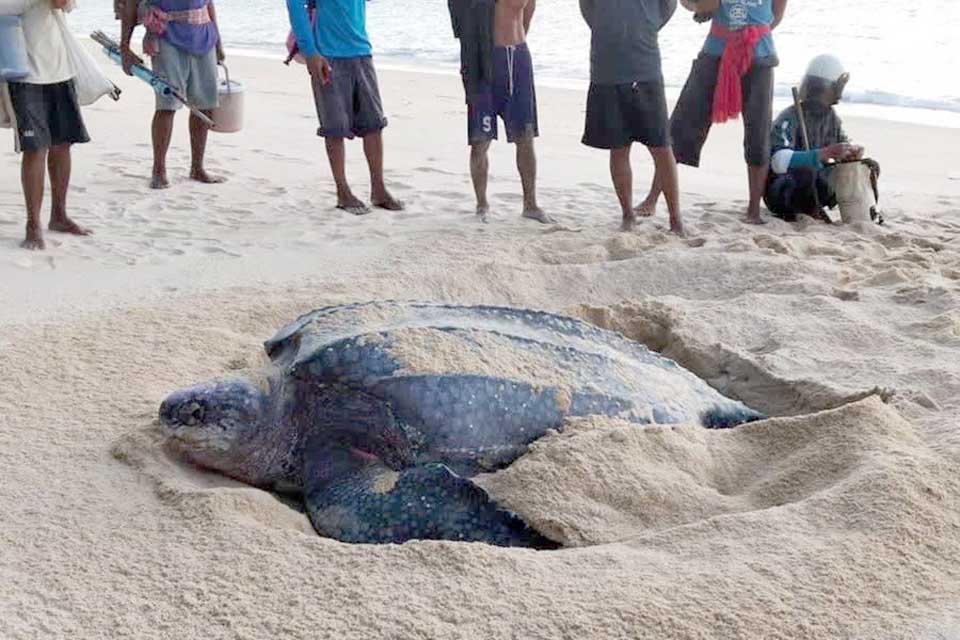
During the Covid-19 pandemic, tourist visits have been restricted, a delightful time for different species of sea turtles to spawn.
According to Phuket Marine Biological Center, the province saw more turtle’s nests than any time before the pandemic. Dozens of nests dug by different sea turtle species containing hundreds of eggs were spotted in 2021. Babies hatched and crawled towards the sea, expected to return when they grow enough to lay eggs for another generation if beaches in Phuket are still in good conditions after the pandemic.
Kongkiat Kittiwatanawong, director of the Phuket Marine Biological Center, said sea turtles’ nesting has improved in the last two years as tourists are absent to the beaches, while pollutions have also been reduced. The number of nests grew the most in the last 20 years.
This is a positive sign for the preservation of endangered species, although chances of survival are very low which is a natural cause. Usually, only about 1 egg hatched out of 1,000 will reach adulthood.
During the pandemic, species including leatherback, hawksbill, green, and loggerhead turtles were found. A nest of the olive ridley sea turtle was also spotted for the first time in 20 years.
However, as the kingdom expected to welcome fully vaccinated tourists, the healthy sea turtles’ nesting in Phuket can only be witnessed temporarily.
Asst Prof Thon Thamrongnawasawat said sea turtles are highly migratory. Without effective policies, Thailand cannot expect long-term population recovery.
Aside from tourism, pollutions and global warming also threaten the existence of marine creatures. Studies have shown that warmer sands lead to more female hatchlings relative to males. Meanwhile, plastic and discarded fishing lines and nets are the primary cause of disease and death of marine creatures.
Dr. Patcharaporn Kaewong from the Phuket Marine Biological Center revealed that 56% of sea turtles brought to the center have ingested waste or are trapped in it.
Currently, scientists and local authorities are on high alert for nesting season, which runs until February. The authorities will quickly fence a turtle nest and install CCTV after a female turtle lays eggs. Weak babies will be taken care of by the center until they are strong enough to go to the sea.
Dr. Patcharaporn added that educating the public about conservation was also important.
Up until a few decades ago, eating turtle eggs was common in Thailand. Gathering sea turtle eggs was banned by the government in 1982.
Those who possess or sell leatherback turtle eggs can be punished for 3 to 15 years in prison.
Some marine protection NGOs even offer financial rewards to locals who report a nest, while microchipping turtle benefits in long-term monitoring and conservation.
Previously, satellite tracking showed microchipped turtles that they can migrate as far as Australia. (NNT)
 |
 |
 |





